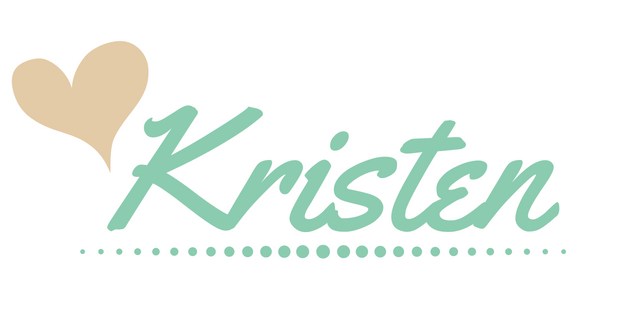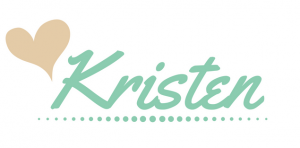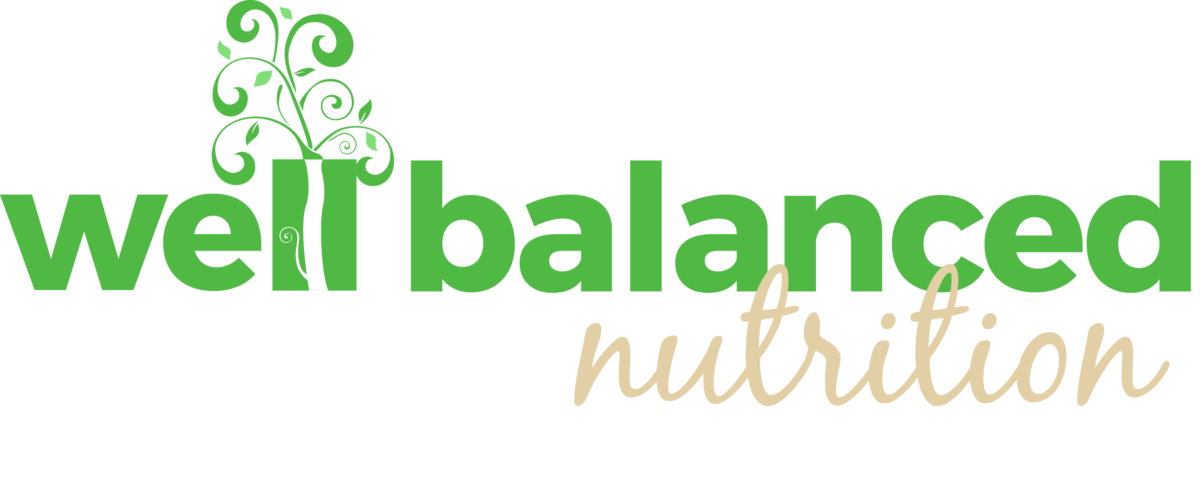
by Lucy | Jan 1, 2017 | Motivational Mondays
Monday, Jan 2, 2017
We are all story tellers. I used to say I’m a terrible story teller, mostly because of my tendency to get off track and ruin the punch line (I call it my “shiny object syndrome”).
Now I see the story my mind is telling me on almost a daily basis. If I’m tired or run down the story is not all sunshine and butterflies but instead my thoughts are focused on what it difficult or “wrong.” Most days I choose a better story. I am healthy. I love my job. I enjoy helping people. I am blessed. I am grateful.
As the New Year began I asked a few healthy people – like yourself – about their own wellness story that separated them from the pack. After listening to many stories I noticed a trend. For most successful well-balanced people their lifestyle choices are simple, mindful, and fun/delicious.
It’s simple
 A hair stylist and friend of mine was telling me his own 20 pound weight loss story of 2016. He said it was “almost so simple it’s silly,” but he stopped buying the trigger foods that were preventing
A hair stylist and friend of mine was telling me his own 20 pound weight loss story of 2016. He said it was “almost so simple it’s silly,” but he stopped buying the trigger foods that were preventing
him from reaching his goal weight. When he cut out fast food, stopped buying Oreos, and included breakfast daily the weight easily came off (and that was without exercise!). Instead of going out for fast food he bought pita bread and alternated between hummus, peanut butter, or deli meat with cheese as an easy lunch or dinner option. He consistently eats boiled eggs with fruit for breakfast and occasionally treats himself to fried eggs, bacon and hash browns.
It’s mindful
A client of mine, who we will call Janice, was mostly on-track when we started to meet last Summer, but she struggled with her snack habit. Janice knew the candy, granola bars, and other munchies at the office were preventing her from reaching her goals. She worked in a high stress environment and often turned to snacks as a stress reliever. Janice put the DATA system into action and practiced mindful eating consistently for three weeks. In that time she lost 6 pounds! Each time she thought about reaching for a snack she paused, described the situation to herself, acknowledged it was just a temporary craving, and turned to a different activity such as deep breathing or a walk around the office. Janice soon discovered she didn’t need to force herself to eat salads for lunch every day and instead she cut the mindless snacks out and remains on-track today.
It’s fun or delicious
I met a gal, Carla, last week who loves cheesecake. She is a diabetic and knows how carbohydrates and simple sugars affect her glucose (sugar in the blood). In the last 4 years, she has progressively changed her diet to primarily eating fruits, vegetables, protein, and some complex carbs – such as whole wheat bread or pasta, quinoa, and oats. However, she still hears the call of the cheesecake when she goes grocery shopping. Carla will occasionally give into the call and buys a small cake with the intention of eating one slice a day for a week. She admits the cake is usually gone within 24 hours. While we talked, I suggested a delicious alternative to the cheesecake. Now, Carla mitigates her cheesecake cravings with 1 graham cracker, a bit of all fruit spread, and whipped cream cheese. She reports this offers a sweet and creamy alternative without guilt or running the risk of high blood sugars!
Another example, when Mama Cathy decided to get more active she knew weight training and walking on the treadmill at the gym was not her idea of a good time. Instead, she tapped into her love of group fitness classes and religiously signs up for the 10-week water aerobics sessions every quarter. She looks forward to playing in the water and getting a great workout every Monday and Wednesday evening. Having a fun exercise also stops her from making less healthy food choices so as to not “undo” all of the work in the pool.
Food for thought:
New Year’s resolutions aside, when thinking about your own wellness goals and initiatives are they simple, mindful, or fun?
If not, how can you simplify your good habits?
How can you make them more mindful?
And where’s the fun?!
If you’re looking for more guidance in 2017, we hope you’ll check out Restart, Rebalance to get you the personalized support you need!


by Lucy | Dec 28, 2016 | Well Balanced Wisdom
If your house is anything like mine, the carols have been sung, the party was enjoyed, the presents have been unwrapped and now Santa and his elves have gone on vacation. Nothing remains but the mess: a mess of toys, a mess of food, a mess of the budget and a mess of all the usual routines. This can make it hard to see past this week and into the New Year let alone the Summer.

BUT if you can, for just a moment, consider this. In a recent study, researchers found that Americans gained more 10 days after Christmas, compared to the 10 days leading up to Christmas and HALF of that weight didn’t come off until the Summer months and beyond. Perhaps it is because we spend the time before Christmas running around preparing for all the events and then once it’s over we sink back into our chairs, take a deep breath and finally get to relax. It can also be easy to over indulge in all the excess food and drinks remaining from the celebrations. It’s important to kick back for a bit and recharge with family and friends, but not to the point that our health should suffer.
You don’t have to stay on this path if you don’t like where it’s taking you. Yes, it is hard to get back on track after a major holiday. Yes, you can do it. Don’t shy away from doing hard things. Instead, remember that today’s choices affect tomorrow’s experiences. We can have the best intentions but it’s our actual choices that will lead us somewhere.
So today is your chance to focus on what you want the most (good health, energy, longevity, positivity, a well-balanced lifestyle, a healthy budget and so on), in order to say no to what you might want in the moment.
Here are some choices to get you thinking:
- Choose water or tea instead of soda, wine, beer, and other sugary beverages.
- Choose to stop when you are full and satisfied regardless of food pushers around you
- Choose to put the sweets away, off the counter and hidden in the back of the fridge
- Choose to put a bowl of fruit on the counter and the vegetables at eye level in your fridge
- Choose to move more and get outside instead of watching Christmas movies all day
Food for thought:
What DO you want most?
What could happen when you choose to focus on what you want the most, rather than what you want in the moment?
If you are ready to lose weight and do not want to do it alone, let us help. Check out Restart, Rebalance to learn more.


by Lucy | Dec 18, 2016 | Motivational Mondays
Monday, December 19, 2016
Fold your laundry! Do the dishes! Why do you always leave your toys on the floor??
A few years ago, I received a book called The Gift of Feedback from my mentor and friend, Heather Miranda. Prior to receiving this book, I had a serious conversation with a supervisor regarding my tendency to be late. At the time, I did not see the feedback about my tardiness as a gift. It felt more like a punch in the gut!
What happens if you criticize or offer constructive feedback to someone? Likely, they get defensive and tell you why you’re wrong. Or they start making excuses to explain or defend their behavior.
Sometimes, especially during the holidays, (aka the season of sugar) we make decisions that we think are bad or wrong. The “bad food” does not perfectly follow our diet or we may have overeaten the good stuff. For example, a friend of mine went to a holiday party last week and decided not to eat any sweets, but after being persuaded by coworkers she ate a few bites of dessert. The next day, my friend checked her weight at the gym and instantly felt terrible because of the number on the scale. She attributed the weight gain to the 3 bites of dessert she ate the day before. Inside, she was highly critical of herself and the story in her mind focused on the “mistake” that she made.
As discovered by the world-famous psychologist, B. F. Skinner, animals learn more rapidly when rewarded for good behavior versus being punished for bad behavior. Studies show this concept applies to us humans too. Some parents may agree they are more likely to get their kids to do chores or homework when praised versus being nagged or threatened.
Food for thought:
If we know criticizing doesn’t work why do we keep doing it ourselves…? As my lovely business partner, Kristen, says: Would those comments in your head be the same thing you’d say to your best friend or mother?
What are 3 accomplishments you are proud of from the past year?
- _____________________________________________
- _____________________________________________
- _____________________________________________
What are 3 choices that you’re proud of from the last week?
- _____________________________________________
- _____________________________________________
- _____________________________________________


by Lucy | Dec 9, 2016 | Motivational Mondays
Monday, December 12, 2016
I have a client, we will call her Clare, and last week she told me how she is such a procrastinator after not implementing the evening exercise routine we discussed at her previous appointment. Clare works a desk job in Durham from 7:30 AM to 4:30 PM Monday-Friday. After work, she has a 30 minute commute home, a puppy to take outside, and dinner to fix for her elderly father. When finished with dinner, cleaning up, and getting ready for the next workday, Clare enjoys lounging on the sofa watching TV or visiting with her father. This is not the time of day she feels motivated to get up and start exercising!
Clare spent 4 weeks between appointments feeling guilty about not getting into the exercise routine we had planned. She continued to work hard monitoring her eating and portion sizes; however, all of that work was overshadowed in her mind by her lack of physical activity.
What went wrong?
We can see the exercise strategy we put together was not conducive to Clare’s lifestyle. The other underlying issue, that’s less obvious, is the story that played in her mind over those 4 weeks. Clare was convinced the only way she could be successful at exercise was to walk or do another activity that raised her heart rate for 30 consecutive minutes. In this scenario, Clare demonstrates a fixed mindset, meaning when she was not successful she could not think of other options that would work better for her. In our conversation, I gave Clare a gift – the gift of a growth mindset! Now she can use these barriers or “problems” as learning opportunities instead of brick walls that stop her from achieving her goals.
Food for thought
Have you been hitting your head against a brick wall?
Most of us have a personal or professional improvement goal, and sometimes all we see are the barriers keeping us from reaching that goal.
Today, take a moment to think of your barriers as learning opportunities instead of problems. What can you learn and do differently?


by Lucy | Nov 30, 2016 | Well Balanced Wisdom
The other day I was listening to a play back of a message I left for someone. It is so strange to hear your own voice, right? The first thing I noticed was that I took really long pauses in between my words. Maybe it is something that only I notice or maybe it is something other people pick up on too. Either way, I am a bit self conscience about it but here is why it happens.
I have grown incredibly aware of how important our words can be. Words, the things that fly out of our mouths, sometimes all willy-nilly like, can leave a lasting impact. You might remember a specific moment when someone’s words made a lasting impression on you – for better or for worse. Maybe it was a motivational speaker or something that was said during an argument. Those are big moments.
Even in the small, everyday mundane moments, our words matter. We can really be in the habit of saying the same words over and over without realizing it. A simple example is how many times we go around saying something like… “How are you?” “Fine, and you?” “Have a good day!”
Now dig a little deeper and think about all the other things we just automatically say. As a parent, I say “See?! Now that’s what you get for doing XYZ.” Or, “That’s why we don’t stand up in the chair.” Ugh… it just comes out like word vomit. I cringe when I hear myself saying that because no one needs to be reminded of a mistake they made in the midst of the pain. Chances are they’ve learned the lesson and they just need a little empathy and understanding.
We can say similar things to ourselves, often without noticing. I ask my clients to weigh themselves daily if they are trying to lose weight, but I tell them to be careful of their words and thoughts as they are doing it.
“I’m so fat.” “I can’t believe I ate all that.” “I’ll never lose this weight.”
These are the kinds of words and thoughts that can really sabotage our best efforts. When we see or hear negative words our bodies send out stress signals. Even worse, when we do it over and over again we can really start to believe those words. The more we hear, read, or speak a word or phrase, the more power it has over us. This is because the brain is always searching for patterns and repetitions in order to make sense of the world around us.
Instead of letting words get the best of us, we can use the power of words our advantage. We first have to gain awareness and then control over that which we are exposing ourselves to daily. Our natural tendency is to focus on the negative, and it takes work to turn that around. So when I speak slowly, it’s because I am consciously making an effort to catch and cancel out those negative words. It’s definitely a work in progress.
Food for thought:
What words do you speak, read or think repeatedly?
Try this today:
Go on a negativity diet.
- First, notice and be aware of your negative words and thoughts.
- When they pop up, you can say, “cancel, cancel, cancel!”
- Replace negative words with positive ones. Try saying challenge instead of problem or yes, later instead of no, not right now.
- Replace judgments and criticisms with words of kindness. We are all doing the best we can so be kind to yourself and others. Or if you must give negative feedback try sandwiching it between two positive statements/thoughts.
Boost the Power of Positivity. The next key is feeding your brain more good thoughts than bad.
- For every one negative thought you have, generate 3 to 5 positive thoughts. Your positive thoughts don’t have to be perfect, sound good or even make sense.
Feed your brain a hefty portion of positive words at least 3 times a day.
- Start your day by reading or saying positive affirmations, quotes or scripture.
- End your emails with a happy message.
- Drink from a cup with an uplifting message on it.
- Plaster sticky notes with positivity on your mirror, computer, phone, etc.
Tell us..
What ideas or thoughts do you have on the power of words?


 A hair stylist and friend of mine was telling me his own 20 pound weight loss story of 2016. He said it was “almost so simple it’s silly,” but he stopped buying the trigger foods that were preventing
A hair stylist and friend of mine was telling me his own 20 pound weight loss story of 2016. He said it was “almost so simple it’s silly,” but he stopped buying the trigger foods that were preventing







